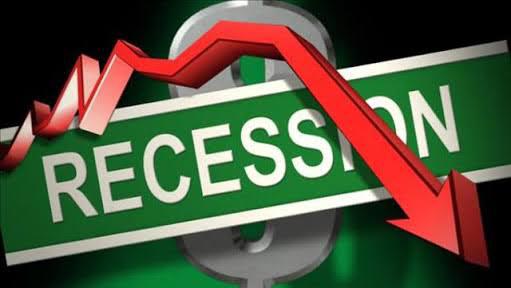Business
FG to rebase Nigeria’s economy after two recessions in five years

In order to improve investment decisions and identify sectors of Nigerian economy that require government intervention, the Federal Government has partnered with the World Bank to rebase Nigeria’s Gross Domestic Product (GDP).
The rebase exercise will cover 2015 to 2018/2019 and replace the old rebase done in April, 2014. According to a statement from the Nigerian Bureau of Statistics (NBS), part of the rebase exercise includes the gathering of company data operating within 17 sectors in the Nigerian economy.
NBS on Wednesday, revealed it had completed listing of establishments, a component of National Business Sample Census, and has now moved on to phase two, which is National Business Sample Survey (NBSS), otherwise known as the survey of establishments.
The NBSD will enable the NBS calculate sectorial figures. According to NBS’s spokesperson, Ichedi Sunday, “the objectives of the National Business Sample Survey include to rebase the Gross National Product from 2010 to 2018/2019”
While listing other purposes of the sample in a statement issued in Abuja, Sunday stated NBS will “provide sectorial data at national and state levels, determine the structure of the Nigerian economy, determine the sectors that drive the Nigerian economy and those that require government intervention to improve them.”
Other objectives gathered from his statement included serving as a benchmark for subsequent commercial and industrial sector statistics surveys. The Bureau stated that the survey will cover 36 states, including Abuja.
READ ALSO: ‘Nigerians paid less for kerosene in December 2020,’ says NBS
While adding that, “In all, 17 sectors of the Nigerian economy will be covered during the survey exercise. Already, data collection on the survey by NBS staff has commenced with lodgments of questionnaires in the selected establishments.
“NBS appeals to the selected establishments to provide the necessary information for the survey as their participation is germane for the successful completion of the survey exercise.” NBS stated.
Ripples Nigeria understands that rebasing of the economy is done due to change in prices and structure of the economy. This provide the government an up-to-date data on the value of the country’s economy, aside from growth rate. The changes in economy structure is related to development of new sectors like the budding tech space which have grown significantly since the last rebase.
The last economy rebase Nigeria did in 2014, showed the country’s economy as worth N80 trillion ($510 billion), against the pre-rebase value of N42.4 trillion ($270 billion). However, growth in a country’s economy value doesn’t necessarily mean economic prosperity due to lack of inclusive growth within the country.
This means the growth in Nigeria’s GDP hasn’t reflected in the lives of its citizens. This was buttressed by President of African Development Bank (AfDB), Akinwumi Adesina, who told African leaders that citizens don’t eat GDP, during in his remarks at the African Delivery Unit Exchange Conference, in November, 2020.
“Yes, we need economic growth, and it’s always a good sign when GDP grows, but let’s be clear: nobody eats GDP. Growth must translate into meaningful impacts on the lives of people. What we should be measuring is not the quantum of economic growth, but the quantum of growth in the quality of life of people.” Adesina said.
Since the previous rebase, inflation has gone up from 8% in 2014 to 15.75% last year, thereby affecting purchasing power of Nigerians, consumer price index has risen from 145.803 points (in 2014) to 267.512 points as of 2019.
One dollar exchanged to naira was at N160 as of 2014, but now exchange for N379. The state of Nigeria’s business environment has affected companies ability to pay up their debt, causing non-performing loans to rise to N1.17 trillion at the end of last year from N35 billion in 2014.
Despite the lack of inclusive growth and two recessions, Nigeria’s economy value is expected to rise above the $510 billion value after re-calculating the GDP figures to factor in new sectors and general economic activities in the last five years.
Note that the rebase will inform the government on areas of the economy that needs government intervention, either through policy or financing.
Join the conversation
Support Ripples Nigeria, hold up solutions journalism
Balanced, fearless journalism driven by data comes at huge financial costs.
As a media platform, we hold leadership accountable and will not trade the right to press freedom and free speech for a piece of cake.
If you like what we do, and are ready to uphold solutions journalism, kindly donate to the Ripples Nigeria cause.
Your support would help to ensure that citizens and institutions continue to have free access to credible and reliable information for societal development.






















